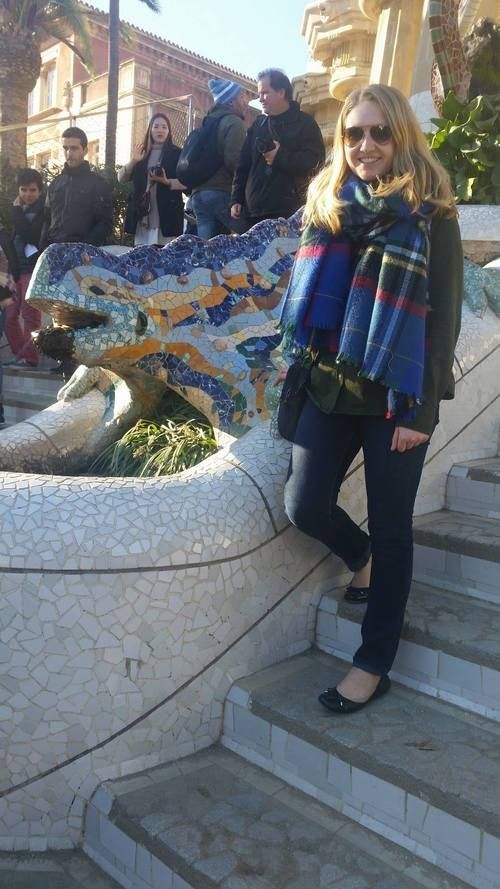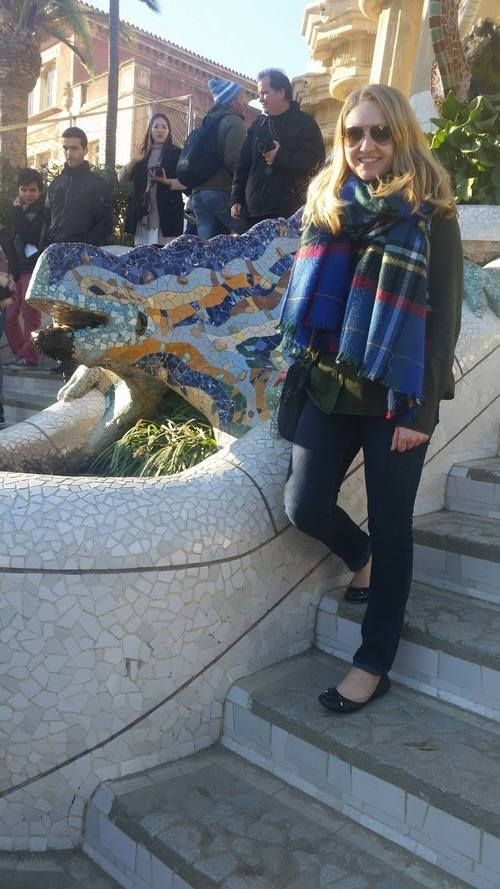Winter in Spain (Introductions)
Let me introduce myself. My name is Meghan, I live in Boston, work in advertising, and have never taught a day in my life. I suppose we teach in our own ways; whether it be mentoring employees at work, guiding tours of our new cities for family, or teaching friends about our hobbies. Don’t get me wrong, I love school, and can see myself teaching. In fact, a few months ago I found out about the CIEE Teach Abroad in Spain Short Term program in Andalucia (southern Spain), thought “Well, I’d like to do that”, and decided to jump. In January 2019, I'll be moving to southern Spain. %&*(#^$&*@!. Amazing.

In college, I studied in Barcelona, and got the opportunity to explore and appreciate Spanish culture. Spain is a geographically, regionally diverse country. From mountains, to beaches, to the desert, to volcanoes, Spain has it all, and is very proud. Their festivals for holidays like Carnival and Semana Santa are some of the largest in the world, and I cannot wait to see it all. However, Catalonia and the province of Barcelona is much different than Andalucia. Barcelona is busier, louder, and more cosmopolitan than the quieter, more traditional southern region. I know that in Andalucia I’ll be eating jamon iberico sandwiches, clamoring over the architecture, and returning to the love of my life (turron suchard), but everything else is up in the air.


Why I wanted to teach with CIEE:
1. I think I’d like to teach in the US one day
2. I don’t want to freeze in another Boston winter
3. I want to explore more of Spain (particularly Basque Country)
4. I want to better my Spanish speaking skills
5. I’ve always wanted to live abroad, and learn a different way of life than the East Coast grind
Did I get lucky or what? After asking my preferences on location and school level, I was placed within the province of Malaga, along the Costa Del Sol, teaching elementary school children.
A little more about my life and hobbies- I love tennis. The United States has warmed up to the sport over the past few decades, but Spain is home to some of the most powerful players in the game, boasting such names as Rafael Nadal, David Ferrer, Roberto Bautista Agut, and Fernando Verdasco. I'm planning to try and go to both the French Open and Wimbledon while abroad. I love photography (shameless plug), and being outside. Mountains, beach, city, forest, anywhere I can feel the sun and ground myself. Exploring new scenery makes me feel like I’m contributing to this world, and in turn it's making me more human.
As I write now about my love for the outdoors, I’m ecstatic to experience life in Malaga. If the skyscrapers of Manhattan are characters in the sitcom of life, the sun on the Costa del Sol is the same. Look at the name: Sun Coast.
While I love to travel and visit anywhere new, international travel is another level. I cannot believe I’m moving abroad. The best part of international travel (next to language learning) is discovering the culture. How do friends act with each other? Couples? What are the family dynamics? In Spain, family is everything. Children can live with their parents into their late twenties, and may never leave the town or province in which they grew up. In the United States, while we may complain about hauling ourselves home for Thanksgiving, I think there’s less of an expectation to stay at home or in our hometowns. Because if we leave, it subconsciously means we’re autonomous or bold enough to pursue our dreams.
So here we are, I’m entering an entirely new industry. I don’t know how to prep lessons, or correct students, or how to explain the basic grammar rules we for some reason use in English. Why do verbs ending in -ed sometimes sound different? Called(-d), Booked(-t),Waited(-id). I can’t fly thousands of miles to be a source of knowledge for these students and not be prepared.
Enter CIEE! Not only do they offer placements to teach abroad, but they offer their own teaching certification courses (TEFL - Teaching English as a Foreign Language). They offer the traditional 150 hour lifetime certification, a 60-Hour refresher/introduction to fundamentals, and a 30-Hour program for students teaching a specific age group. The Spanish program (Auxiliares de Conversación) doesn’t require the full 150-hour TEFL certification, so I’ve enrolled in the 60 hour program. Over the next couple of months, I’ll be writing about my experience taking the course, moving to Spain, teaching, and implementing TEFL practices and lesson plans. Stay tuned.
MM



